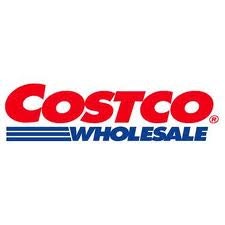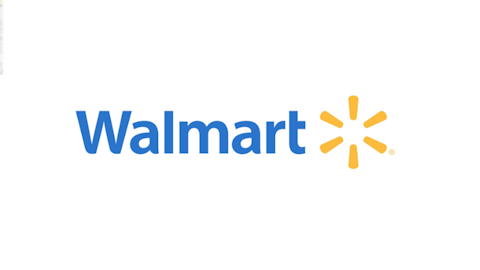Slightly different from ordinary retailers, specialty retailers like
Big Lots, Inc. (NYSE:BIG), Liquidity Services, Inc. (NASDAQ:LQDT) and Costco Wholesale Corporation (NASDAQ:COST) offer specific products to customers, usually at discount prices, and a differentiated business model that provides plenty of upside opportunities for shareholders. Let’s look into these three companies to determine if they are a good place to put our money.
Costco
Retail giant Costco Wholesale Corporation (NASDAQ:COST) is, for many, a top pick in the sector. This firm offers an interesting business model that creates a highly loyal customer base with its membership policy. Memberships cost between $55 and $110 per year and provide customers access to almost-at-cost prices. Although the company gets 98% of its revenue from store sales and only 2% from membership fees, these last account for 77% of its operating income. In addition, 86% of customers renew their affiliation every year, providing Costco Wholesale Corporation (NASDAQ:COST) a steady and constant clientele and plenty of pricing power, as its public has proven to be resilient to membership fee increases.
Due to the importance of memberships for revenue, Costco can offer the two most basic goods, food and fuel, at cost or loss. This should help the firm retain its outstanding market share and even expand it as inflation continues to hit these basic products.
International locations also deserve a mention. Although in its early stages, international expansion already provides returns higher that its cost of capital, unlike the majority of its competitors. Earnings upside in overseas markets, especially in emerging economies, are plenty; Costco Wholesale Corporation (NASDAQ:COST)’s simple and effective business model makes it likely to succeed outside the U.S., particularly in fast-growing countries experiencing high inflation rates as more people tend to look for discount prices.
In order to deliver lower costs to customers while improving its own margins, Costco Wholesale Corporation (NASDAQ:COST)relies on a no frills policy. It cuts all unnecessary expenditure to a minimum, saving on advertising, marketing and store conditioning.
Apart from its business proposal, several other features of this company make it a buy. For starters, its management has a compelling track record while other intangibles like customer service are never left unattended. Equally interested in its customers’ and investors’ happiness, Costco Wholesale Corporation (NASDAQ:COST) has and continues to offer attractive returns to shareholders through dividend payments, yielding about 1.1%, and stock repurchases while still conserving enough free cash to support the costs of its ongoing expansion plans.
Encouraging financial results for last quarter offer extra reasons to invest. Earnings reached $1.04 per share, up 18% year over year, while revenue escalated 8% to $23.55 billion. Analyst consensus estimates project a 13.5% growth per year during the next five years. Trading at a 23.6 P/E ratio, quite above the industry average valuation, but only 0.5 times its sales, while offering compelling long-term growth prospects, I would recommend buying this stock.
Big Lots
Although Big Lots, Inc. (NYSE:BIG) had a weak start to 2012, it recovered by ending it with higher-than-expected financial results. Fourth quarter earnings came in at $2.09 per share, up 19% year over year, beating Zacks Consensus Estimate by ten cents (or 5%). Revenue also grew by 5%, reaching $1.753 billion. However, 2013 started out weak, once again; in line with Deutsche Bank’s recommendation, I would advocate holding this stock for now. A sluggish economy combined with decreasing margins are my main concerns.
Keeping an eye on this stock and watching how it evolves wouldn’t be a bad idea. Several changes are expected in the near future, including a new CEO and various merchandising initiatives.
While quality, value and variety have provided the base for the firm’s success in the past, store remodels, which have been providing compelling early results in tested locations, should help drive growth in the upcoming quarters. The same can be said about the update in its rewards loyalty program, which should encourage client stickiness while attracting new customers. Moreover a new merchandising leadership in both Canada and the U.S. should revamp the company’s image.
Growth should also come from store expansion; plans include opening over 200 stores between 2011 and 2013 and expansion into the Canadian market, with promising early results and even better looking long term prospects, bolstered by the Liquidation World acquisition. I’d recommend not losing track of this firm.
Liquidity Services
The advice to buy Liquidity Services, Inc. (NASDAQ:LQDT) is almost unanimous among analysts (Barros, WSJ, Morningstar, Zacks, Deutsche Bank). You might wonder why. Liquidity Services recently received the Company Growth Award in the over $250 million revenue category from the National Capital Chapter of the Association for Corporate Growth. During fiscal 2012, the company’s adjusted EBITDA increased 109% to a record $110.1 million, operating cash flow increased 31% to a historic high of $52.1 million, and adjusted diluted EPS increased 77% to a record $1.86. In addition, gross merchandise volume through Liquidity Services, Inc. (NASDAQ:LQDT)’s online marketplaces was up 55% to a record $864.2 million and its global buyer base for surplus assets and inventory also grew by 36% to nearly 2.2 million.
Furthermore, the company has shown a consistent growth trend since 2004, reaching a 22% EPS CAGR. In general, its financials appear stronger than the industry average (see table below). As stated above, this trend appears to continue.
| Liquidity Services | Industry Average | |
| Rev Growth (3 Yr Avg) | 26.2 | 7.5 |
| Net Income Growth (3 Yr Avg) | 103.6 | 45.8 |
| Operating Margin % TTM | 15.5 | 4.4 |
| Net Margin % TTM | 9.3 | 4.2 |
| ROA TTM | 13.1 | 7.3 |
| ROE TTM | 19.4 | 17.6 |
| Debt/Equity | 0.1 | 0.3 |
Source: Morningstar
Despite some misses in last quarter’s earnings, the long-term prospects for this company remain promising. As co-founder William Angrick assures, “by focusing on value-creating investments measured over a multi-year horizon, we expect to deliver outstanding results to our clients, through our market share and increase shareholder value.”
While completing the integration of the recent acquisitions comprising the National Electronics Service Association, GoIndustry DoveBid and Jacos Trading, other main initiatives taking place include considerable investments in IT platforms, improving buyer and seller experiences as well as chances of scaling the business.
Its surplus sales deals with government agencies should also constitute a main growth driver in the upcoming years. Liquidity Services, Inc. (NASDAQ:LQDT) holds roughly 5,600 government contracts at the federal, state and local level, a number that should increase as budgets return to normal levels.
After reaching $66.57 per share last May, the stock has been down to less than half that. Currently priced around $31, it trades at a P/E of 26.4, close to a 10-year minimum and at a 53% discount to the industry average. Valuation is particularly attractive if the company’s growth prospects are taken into account. Over fiscal year 2013, consensus estimates project a 34% EPS increase to $1.97 per share and an surge of over 14% in revenue. Furthermore, over the next five years, the company is expected to deliver an average annual EPS growth rate of approximately 18.4%, almost 30% above the industry average projections.
Bottom line
Although two of these three companies offer interesting investment prospects, Liquidity Services, Inc. (NASDAQ:LQDT) offers the most convincing one. Its interesting business model and ongoing store and margin expansion initiatives portray an encouraging outlook. Get a hold of this stock while it trades cheaply and prepare to enjoy several years of returns.
Victor Selva has no position in any stocks mentioned. The Motley Fool recommends Costco Wholesale (NASDAQ:COST) and Liquidity Services. The Motley Fool owns shares of Big Lots and Costco Wholesale.
The article There’s Something Special About Specialty Retailers originally appeared on Fool.com.
Copyright © 1995 – 2013 The Motley Fool, LLC. All rights reserved. The Motley Fool has a disclosure policy.




